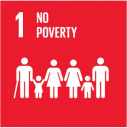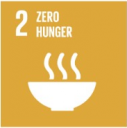About the Project
A composting toilet is a type of dry toilet that treats human excreta by a biological process called composting. This process leads to the decomposition of organic matter and turns human excreta into compost-like material but does not destroy all pathogens. Composting is carried out by microorganisms (mainly bacteria and fungi) under controlled aerobicconditions.[2] Most composting toilets use no water for flushing and are therefore called "dry toilets".
In many composting toilet designs, a carbon additive such as sawdust, coconut coir, or peat moss is added after each use. This practice creates air pockets in the human excreta to promote aerobic decomposition. This also improves the carbon-to-nitrogen ratio and reduces potential odor. Most composting toilet systems rely on mesophilic composting. Longer retention time in the composting chamber also facilitates pathogen die-off. The end product can also be moved to a secondary system – usually another composting step – to allow more time for mesophilic composting to further reduce pathogens.
Composting toilets, together with the secondary composting step, produce a humus-like endproduct that can be used to enrich soil if local regulations allow this. Some composting toilets have urine diversion systems in the toilet bowl to collect the urine separately and control excess moisture. A vermifilter toilet is a composting toilet with flushing water where earthworms are used to promote decomposition to compost.
Composting toilets do not require a connection to septic tanks or sewer systems unlike flush toilets.[2] Common applications include national parks, remote holiday cottages, ecotourism resorts, off-grid homes and rural areas in developing countries.
This project started from Burundi, with our partners there needing concrete ideas.
(French )
Les toilettes sèches assurent notamment confort, hygiène et sécurité accrus à leurs utilisateurs. Elles permettent également une diversification des activités génératrices de revenus au niveau local dans un cadre respectueux de l’environnement (économies d’eau et production d’un fertilisant de grande qualité pour la production agricole, afin de garantir à terme sécurité et souveraineté alimentaires).
Avec l’usage accru des toilettes sèches et leur mise à disposition à l’occasion de manifestations publiques, les utilisateurs ont anticipé une probable pénurie en sciure de bois. Ils ont donc développé un broyeur à végétaux afin de disposer d’un matériau de remplacement respectueux de l’environnement. Les premiers essais ont démontré des perspectives intéressantes (alternative à la sciure de bois pour les toilettes sèches, mais aussi production d’engrais organique ou de briquettes de chauffage).

No Ideas related to project.




 2
2 0
0